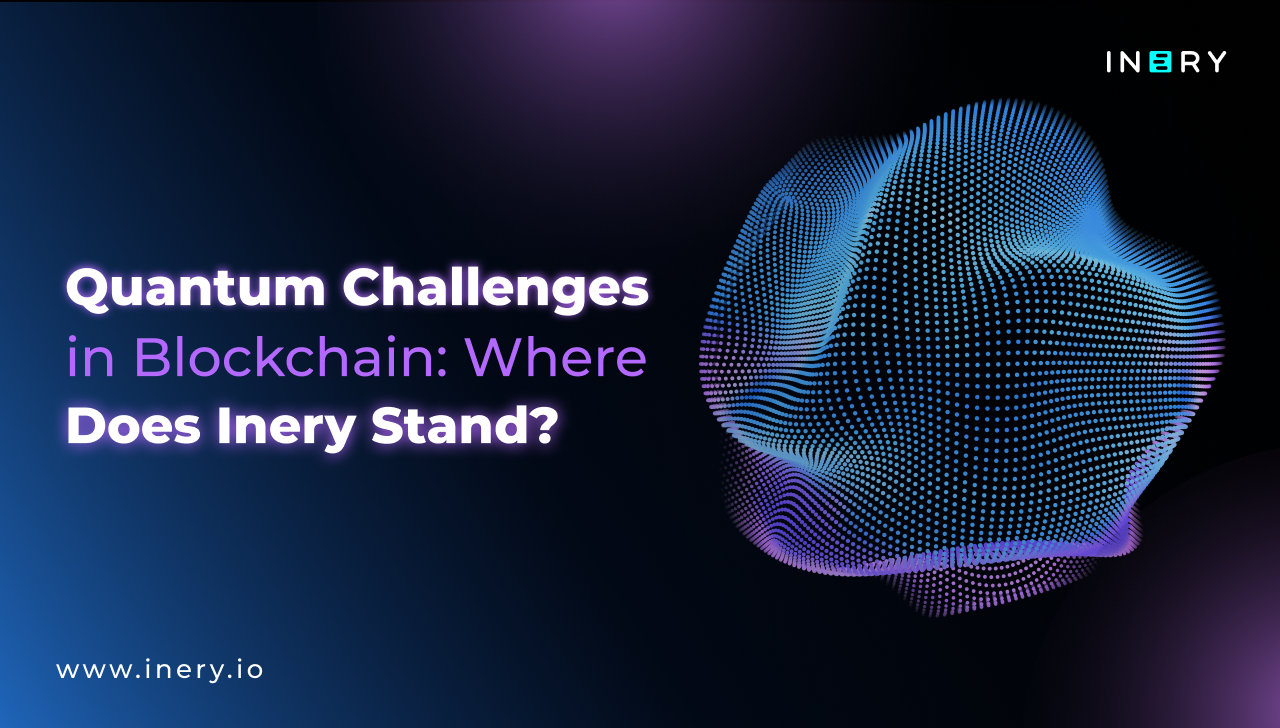Blockchain technology, as exemplified by Inery, presents a transformative opportunity for numerous industries by offering decentralized solutions that enhance security, transparency, and efficiency.
However, integrating blockchain into traditional sectors comes with a unique set of challenges. This discussion will explore the potential application of blockchain solutions across major industries, highlight some implementation challenges, and how Inery's technology can specifically be implemented to mitigate these challenges.
Potential Blockchain Applications in Traditional Industries
Blockchain technology holds transformative potential across a broad spectrum of sectors beyond just finance, healthcare, and real estate. Its attributes of decentralization, immutability, and transparency can bring about substantial improvements in various traditional industries:
Finance
Blockchain introduces radical improvements in the security and efficiency of transactions. By using decentralized ledgers, financial institutions can reduce the incidence of fraud and errors, enhance the speed of transactions, and lower operational costs. For instance, cross-border transactions, often cumbersome due to the involvement of multiple intermediaries, can be streamlined through blockchain, leading to faster settlements and reduced transaction fees.
Healthcare
Secure and immutable patient records on a blockchain can greatly improve access to and privacy of medical records, making it easier for healthcare providers to access accurate patient histories across borders without compromising data security. Blockchain can also be used to manage pharmaceutical supply chains, ensuring drug integrity and combating counterfeit medications.
Real Estate
Blockchain can streamline property transactions by reducing the need for paper-based records, expediting property transfers, and enhancing transparency in transactions. Smart contracts could automate various aspects of real estate operations, including leasing and sales transactions, and municipal property record management, thereby reducing the potential for human error and fraud.
Supply Chain Management
The supply chain sector can benefit significantly from blockchain by gaining increased traceability of products from manufacture to sale. This technology can help verify the authenticity of goods, monitor supply chains in real-time, and reduce costs by eliminating middlemen. Companies like Maersk and Walmart have already begun implementing blockchain to manage their supply chains more efficiently.
Education
Blockchain can secure the storage of educational credentials, streamlining the verification process for employers and educational institutions. This can reduce the prevalence of fraudulent claims about educational achievements and facilitate more straightforward credential verification across borders.
Energy
In the energy sector, blockchain can be used to create more transparent and efficient systems for tracking and trading energy credits, particularly in renewable energy markets. It can facilitate peer-to-peer energy trading platforms, allowing homeowners with solar panels, for example, to sell excess electricity directly to their neighbors, bypassing traditional energy utilities.
Despite these potential benefits, the adoption of blockchain in traditional industries often encounters hesitation due to its nascent nature and the complexities associated with regulatory and compliance issues. Each industry's existing legal frameworks vary significantly by jurisdiction, posing a substantial challenge to widespread blockchain integration.
As these industries explore blockchain's potential, they must navigate these legal landscapes, which can differ markedly from one country to another, sometimes even within regions in the same country.
This complex legal environment necessitates careful planning and adaptation to integrate blockchain solutions effectively while complying with existing regulatory standards. Such integration not only promises enhanced operational efficiency but also greater security and transparency across various sectors.
Challenges of Blockchain Implementation
One of the primary challenges is the integration of legacy systems with blockchain technology. Many industries have established systems that are incompatible with blockchain, and transitioning can be costly and time-consuming.
Furthermore, the blockchain's promise of decentralization clashes with the centralized frameworks many industries operate within, creating potential resistance from those who benefit from existing systems.
Moreover, scalability remains a concern. Blockchain networks, particularly those employing Proof of Work (PoW) consensus mechanisms, face issues like high energy consumption and slow transaction speeds. This is less suitable for industries like finance or retail, where transaction speed is critical.
Implementing Inery in Traditional Industries
Inery offers a layer-1 blockchain solution designed to address these traditional industry challenges by providing a decentralized database management system. This system supports high transaction speeds and low latency, which are crucial for enterprise-level applications.
Inery's cross-chain interoperability feature enables seamless data transfer across different blockchain networks, which is vital for industries like logistics and supply chain management where different systems need to interact.
Moreover, Inery's blockchain is designed with a self-delegated Proof-of-Stake mechanism, which enhances security while being more energy-efficient compared to traditional PoW systems.
Inery's data management system is particularly poised to revolutionize industries by providing a platform that not only ensures data integrity but also enhances security with its tamper-resistant and immutable record-keeping capabilities. This is especially relevant in sectors like healthcare and financial services where data security and integrity are paramount.
Upsides and Drawbacks
The upsides of implementing Inery’s blockchain technology in traditional industries include enhanced security, increased efficiency, and reduced costs due to automation and decreased reliance on intermediaries. Additionally, Inery's blockchain facilitates a higher degree of transparency and traceability in operations, which can lead to increased trust among stakeholders.
However, there are drawbacks to consider. The initial cost of transitioning to a blockchain system can be significant. There is also a steep learning curve associated with adopting new technology, which can be a barrier for industries that lack technical expertise. Finally, the evolving nature of blockchain technology means that regulatory and compliance standards are still being developed, which could pose risks and uncertainties.
In conclusion, while the implementation of blockchain technology like Inery’s presents several challenges, its potential to enhance operational efficiency, ensure data security, and improve transparency can provide significant long-term benefits to traditional industries. With careful planning and execution, these challenges can be mitigated, paving the way for a more secure and efficient system of operations across various sectors.

Inery•
1 year ago
Say Hello to IneryDB GUI Version 2.1!
Discover IneryDB GUI Version 2.1! This update features a powerful Multiformat Import Plugin for seamless data migrations from JSON, XML, and CSV formats, alongside enhanced user experience and front-end improvements. ...READ MORE
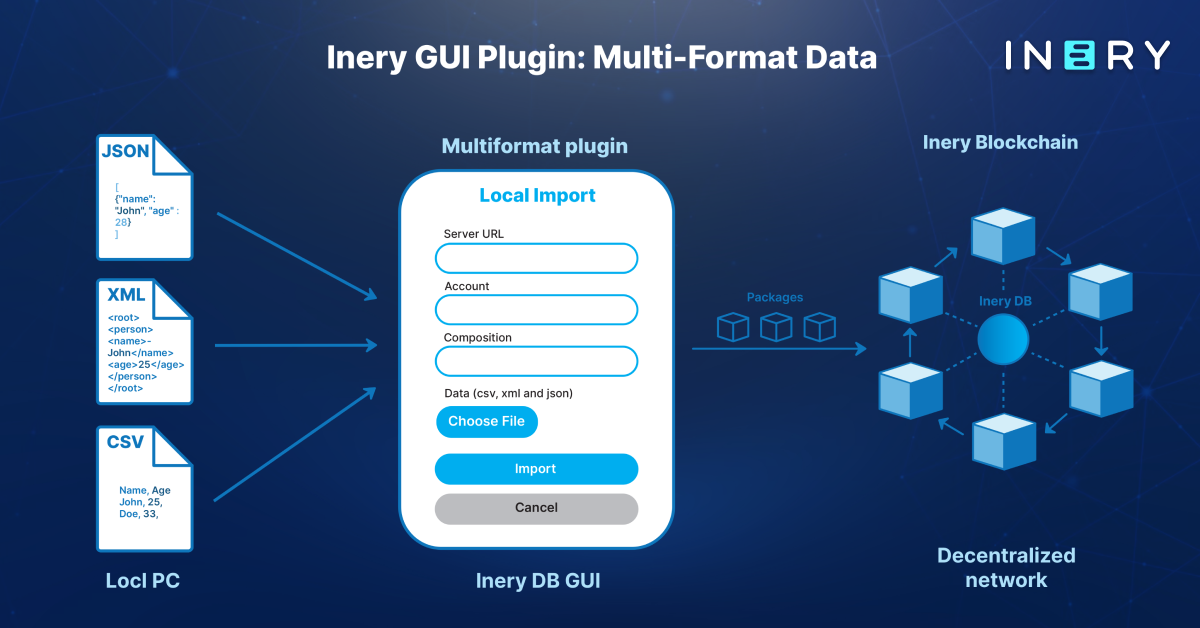
Share

Inery•
2 years ago
Why Governments Want Decentralized Solutions
Governments, the ultimate centralized authorities, can gain a lot from decentralized solutions. Here’s a taste of the benefits. ...READ MORE
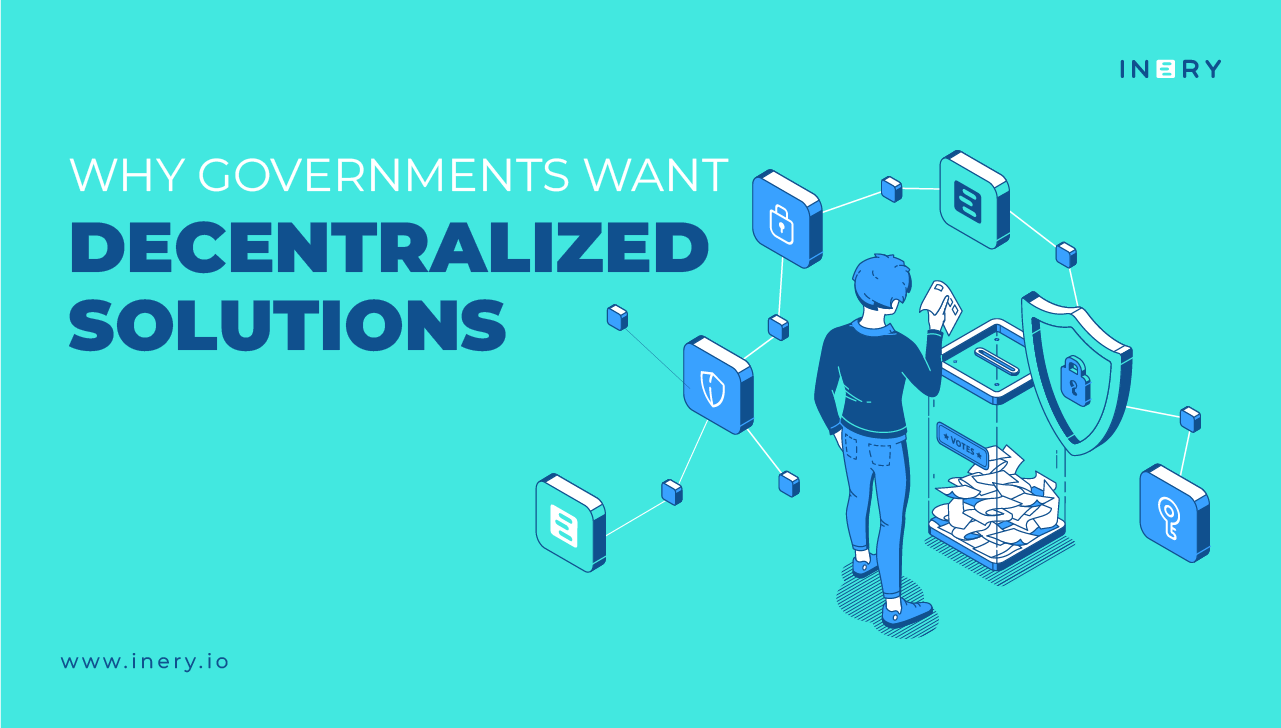
Share

Inery•
3 years ago
What is Inery?
A deep dive into Inery, the problem we are solving, use-cases, a look at team and advisors ...READ MORE
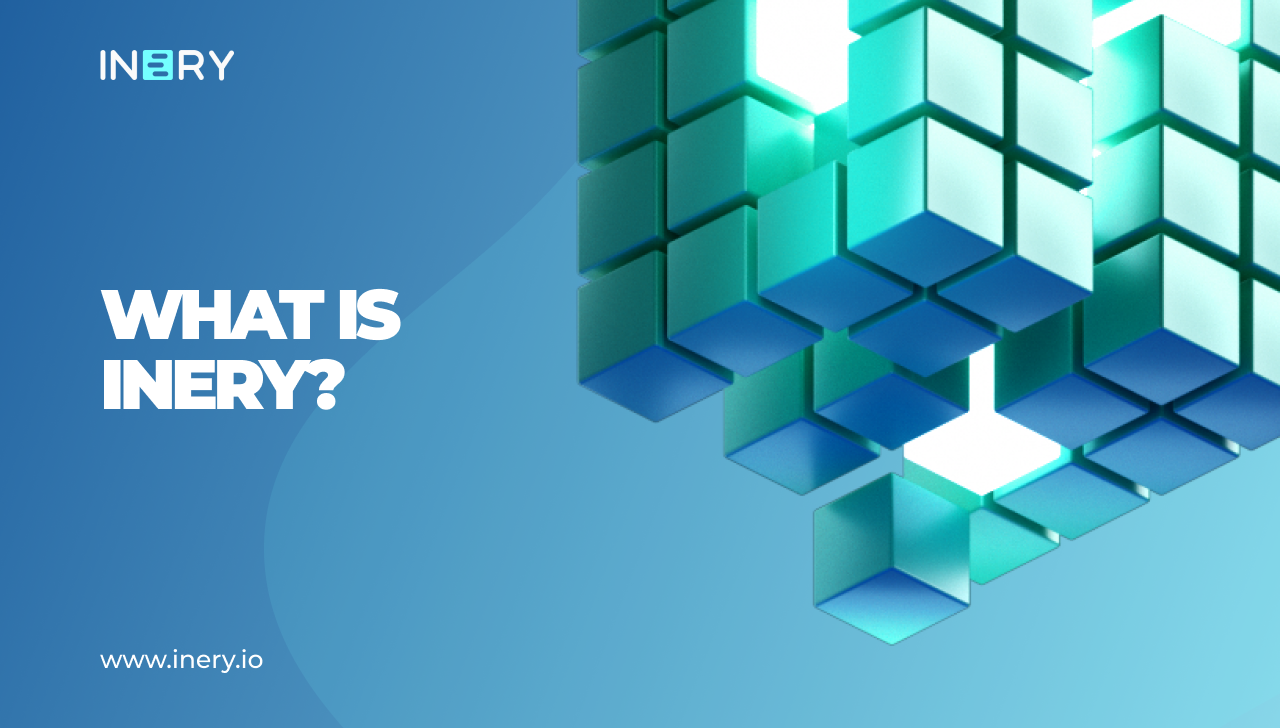
Share

Inery•
3 years ago
Database Management: Decentralizing From Ground Zero
Inery’s efforts to build a layer-1 blockchain to offer decentralized database management. ...READ MORE
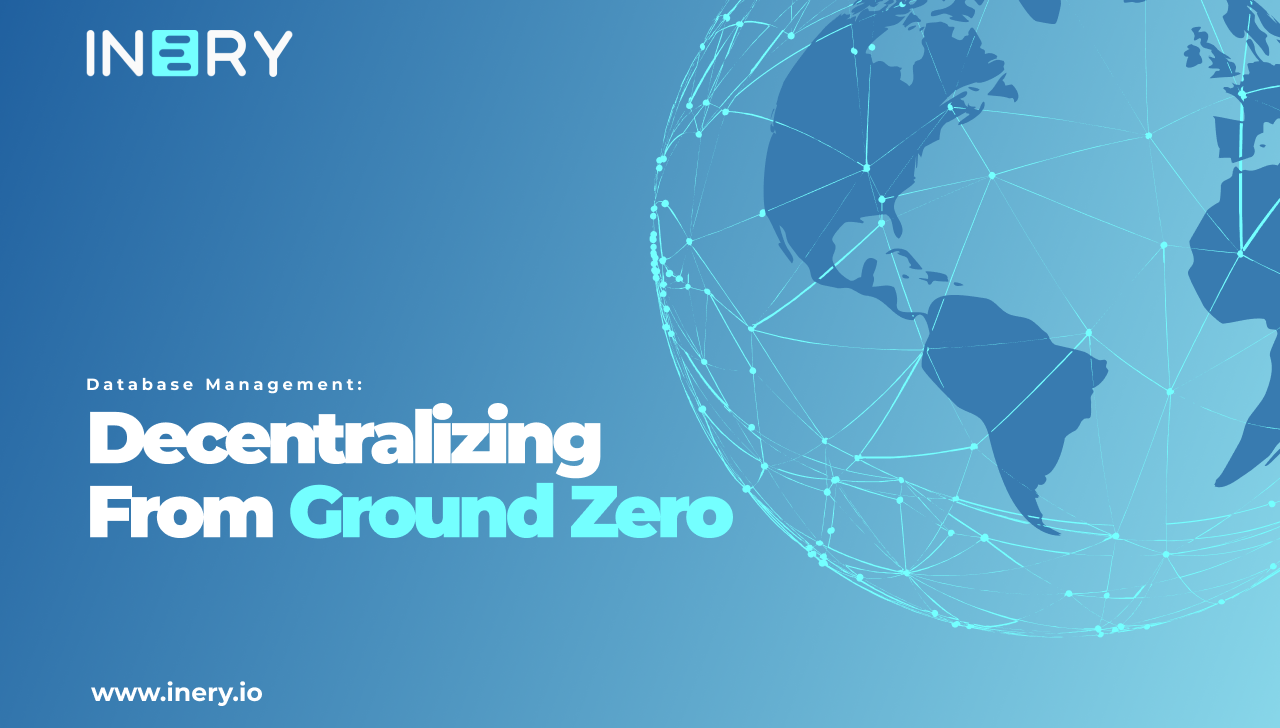
Share
Most popular today

-1715854000.png)

